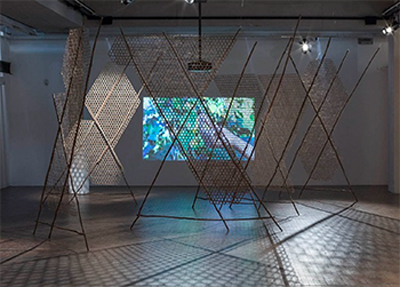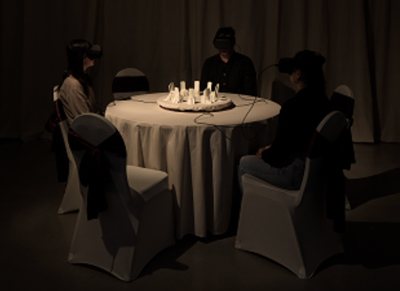Welcome to “Brave New World Literature,” our special milestone edition marking ten full years of curating the very best in contemporary letters. To celebrate, we bring you an exclusive last interview with James Salter conducted before he died in 2015, new translations of Alfred Döblin and Alain Mabanckou, as well as a trio of essays by intellectual heavyweight Eliot Weinberger, former Granta editor John Freeman, and frequent contributor Jeremy Tiang—all suggesting a “culturally multidirectional” way forward for the next decade.
In addition to featuring a “writer’s writer” (James Salter), we’re thrilled to debut in English a “true poet’s poet” (the Mexican Max Rojas) in a roster that also includes poet superstars Najwan Darwish and Carlos de Assumpção. Elsewhere, fellow Brazilian writer Adelice Souza and Hungarian author Anna Mécs give us a pair of stunning fictions in which women perform (or postpone) their deaths, while our first nonfiction lineup under new Nonfiction Editor Bassam Sidiki sees a fascinating pseudo-scientific colonial document answered with a modern memoir of Egyptian politics. In light of ongoing protests by Navalny supporters all across Russia, Artur Solomonov’s drama—also about enacting death, while portraying the machinery of state propaganda—could not be more timely: The play was in fact considered so politically inflammatory that it has only ever been staged underground. All of this is illustrated by talented guest artist the Australia-based Naomi Segal.
In our final Writers on Writers section, Asuka Minamoto spotlights the curious plight of Zainichi Koreans like Yang Seok-Il, who see themselves as neither Japanese nor Korean but just “in Japan.” Meanwhile, the peripetatic narrator of João Gilberto Noll’s Harmada—reviewed here by Jenny Wu—asks, “What does it mean to traverse a city that can be, simultaneously, any city and no city at all?” Forget traversing; if lockdown has you simply longing to dine in at restaurants again, head right over to “The Chinese Restaurant as Portal,” in which the brilliant Swedish artist Lap-See Lam ventriloquizes the Chinese restaurant itself.
But there’s more to celebrate than just new discoveries from 31 countries. I hope you’ll also join me in congratulating our part-time staff who rallied to make this issue happen despite a once-in-a-century pandemic (and, in the case of one key member, persistent COVID symptoms that have stretched for months). My fellow team members all through the years (whether our paths converged for only three months or eight years, whether you helped with the blog or book club): I'm so proud to share this issue, this milestone with you.
As for me, the only constant (as well as the only full-timer) from the very beginning, all I have to say, inspired by John Freeman’s behind-the-scenes candor, is this: Holding together a 100-strong virtual volunteer team and maintaining the magazine’s high standards across so many platforms (including social media) would already seem impossible in normal times. Factor in the exclusion, deliberate or otherwise, in a very white publishing landscape, of editors of color; the exclusion practised by most grant-giving institutions along national lines; the fact that we receive no institutional funding on an ongoing basis (and not for lack of trying too; see, for example, this November 2020 letter to the Singapore National Arts Council’s CEO and head of the literary arts department); and, the hostility, in some corners, directed at us even so, simply because we can’t afford to pay ourselves, let alone our contributors (and are therefore, so the vicious cycle goes, not worthy of support in the first place)—factor in all this, and you’ll see that the world literature we have put out is as brave as it is new because the inclusiveness we stand for is at the cost of so much exclusion.
We had meant to organize a fundraiser to help us toward the next decade, but, already stretched too thin, decided to focus simply on getting this issue up. Still, if you have appreciated a full decade of this international literary space and would like to see us continue, we humbly ask you to take a few minutes to sign up as a sustaining or even masthead member today—if only as a birthday present to us and to show how much our work has meant to you. In addition to the new perks (such as a 2021 digital calendar) listed in our newly revamped Donate page, all new supporters will also receive a brand-new ebook anthology, “Brave New World Literature,” collecting the best essays published under the aegis of our Special Feature but also including exclusive material not available anywhere else on our site. Until we return with our next edition in Summer 2021, apply to join the team (deadline extended to February 15), check out our submission guidelines, take your reading to the next level with our international Book Club, subscribe to our Fortnightly Airmails, and follow us at our daily blog, on Facebook, Twitter, as well as our two new Instagram feeds. Thank you for your readership and your support.
—Lee Yew Leong, Editor-in-Chief
Editorial Team for Issue January 2021
Editor-in-Chief: Lee Yew Leong (Taiwan/Singapore)
Assistant Managing Editors: Helena Fornells (UK), Daljinder Johal (UK/India), Malak Khalil (UK), and Lindsay Semel (Portugal/USA)
Section Editors:
Lee Yew Leong (Taiwan/Singapore)
Bassam Sidiki (USA/Pakistan)
Garrett Phelps (USA)
Caridad Svich (USA/UK)
Ah-reum Han (USA/South Korea)
Sam Carter (USA)
Eva Heisler (USA)
Edwin Alanís-García (USA)
Editor of Special Feature on Brave New World Literature: Lee Yew Leong (Taiwan/Singapore)
Assistant Editors: Edwin Alanís-García (USA), Alyea Canada (USA), (Canada), Whitney DeVos (Mexico/USA), Barbara Halla (France), Marina Martino (UK), Maya Nguen (USA), Andreea Scridon (UK/Romania), P. T. Smith (USA), and Lin Chia-wei (Taiwan)
Contributing Editors: Ellen Elias-Bursac (USA), Aamer Hussein (UK), Sim Yee Chiang (Singapore), Dylan Suher (USA), and Adrian West (USA)
Translation Tuesdays Editor: Edwin Alanís-García (USA)
Art Director: Lee Yew Leong (Taiwan/Singapore)
Assistant Director, Educational Arm: Kent Kosack (USA)
Editors-at-large, Argentina: Allison Braden and Sarah Moses
Editor-at-large, El Salvador: Nestor Gomez
Editor-at-large, Guatemala: José García
Editors-at-large, Hong Kong: Jacqueline Leung and Charlie Ng Chak-Kwan
Editor-at-large, Japan: David Boyd
Editor-at-large, Lebanon: MK Harb
Editor-at-large, Malaysia: Tan Kwan Ann
Editor-at-large, Morocco: Hodna Nuernberg
Editor-at-large, Palestine: Carol Khoury
Editor-at-large, Romania and Moldova: MARGENTO
Editor-at-large, Serbia: Jovanka Kalaba
Editor-at-large, Singapore: Shawn Hoo
Editor-at-large, Sri Lanka: Chamini Kulathunga
Editor-at-large, Slovakia: Julia Sherwood
Editors-at-large, Taiwan: Vivian Chih and Darren Huang
Editor-at-large, Uzbekistan: Filip Noubel
Editors-at-large, Vietnam: Thuy Dinh and Quyen Nguyen
Masthead for Issue January 2021
Fiction and Special Feature on Brave New World Literature: Lee Yew Leong
Nonfiction: Bassam Sidiki
Poetry: Garrett Phelps
Drama: Caridad Svich
Criticism: Sam Carter
WoW: Ah-reum Han
Visual: Eva Heisler
Interview: Edwin Alanís-García
Illustrations and Cover: Naomi Segal
Asst. Interview Editor: Sophia Stewart
Assistant Managing Editor (supervising Assistant Editors): Lindsay Semel
Assistant Managing Editor (supervising Editors-at-Large): Daljinder Johal
Communications Manager: Stefan Kalpachev
Director of Outreach: Alessandro Mondelli
Chief Executive Assistants: Rachel Farmer and Samuel Miller
Senior Executive Assistants: Bernice Seow and Julie Shi
Blog Editors: Josefina Massot, Sarah Moore, and Xiao Yue Shan
Newsletter Editor: Rita Horanyi
Guest Artist Liaison: Berny Tan
Senior Copy Editors: Devarati Chakrabarti, Rose Green, and George Macbeth
Copy Editors: Anna Aresi, Alice Banks, Andrea Blatz, Bella Bosworth, Sophie Hoffman, Samantha Kirby, Rachel Rosenberg, Monica Sestito, and Rachel Stanyon
Technical Manager: József Szabó
English Social Media: Ruwa Alhayek, Scarlett Castillo, Felipe Fernandez, Georgina Fooks, and Charlotte Jackson
Spanish Social Media: Sergio Serrano, Sofia Monzó, and Madeline Robinson
French Social Media: Filip Noubel
Chinese Social Media: Jiaoyang Li and Jessica Wang
Graphic Designer: Renée Elizabeth Clarke
Video Producer: Xiaolu Wang
Merchandise Designer: Michael Laungjessadakun
Marketing Manager: Ivana Galapcheva
Assistant Director, Educational Arm: Kent Kosack
Educational Arm Assistants: Katarzyna Bartoszynska, Lucchini Clémence, Mary Hillis, and Thirangie Jayatilake.
Business Developer: Katherine Kamel
Intern: Jennifer Hon Khalaf
Asymptote would like to acknowledge the support especially of: Eliot Weinberger, Pauline Fan, Anita Christensen, Hyunjin Cho, Samuel Kahler, T. De Los Reyes, Myriam Alfano, Kristine Ong Muslim, Jee Leong Koh, Jamie Uy, and Sooyun Yum of LTI Korea.
For their generous donations, our heartfelt thanks go too to Alison Watts, Andrew Adair, Ann Goldstein, Anna Aresi, Audrey Lai, Bassam Sidiki, Benjamin Saff, Brother Anthony of Taizé, Chris Tanasescu, Christina Chia, Cynthia Whitehead, Daniel Hahn, Dora Zhang, Dustin Simpson, Elisabeth Brock, Ellen Elias-Bursac, Eric Fishman, Forrest Gander, Genia Blum, Gina Caputo, Heidi Holzer, J Nicholas Power, James Macry, Jan Lukas Kuhn, Jared Davis, Jeffrey Boyle, Jenna Colozza, Katarzyna Bartoszynska, Katrine Jensen, Lara Norgaard, Laura Marris, Lawrence Flood, Mallory Truckenmiller, Margaret Jull Costa, Margaret King, Marjolijn de Jager, Mark Cohen, Martin Ingebrigtsen, Mary Olivanti, Matthew Mazowita, Michaela Jones, Monty Reid, Nancy Relaford, Nora Bojar, Redondo Andrea, Reif Larsen, Roberto Tejada, Rosemary Freriks, Sidney Wade, Tiffany Tsao, Velina Manolova, William Justice, Xiangxiu Meng, and Yann Martel.
We welcome new members of the Asymptote family Arteth Gray, Constanze Wehnes, Dana Delibovi, Gail Newman, Kent Kosack, Marguerite Feitlowitz, Mireille Pierre-Louis, and Steve Lehman.



